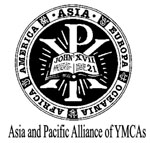Task Force on Disaster Response Management Meeting
The Task Force on Disaster Response Management meeting held last June 24-27, 2019 that was warmly hosted by YMCA of Taiwan was a follow through to the goal of creating a regional guiding principles and system of coordination and cooperation among various stakeholders during disaster response. The said goal was in reference to the main thrusts of the TF of:
- developing disaster response and management policies and programming at the regional level that supports the process of strengthening the movement’s coordination and cooperation
- ensuring that a relevant disaster response and management system is in place to address the needs of the most vulnerable people affected by disasters and to maximize the impact on the lives of the people
- promoting capacity building of national and/or local movements for disaster in the areas of response preparedness, disaster needs assessment and relief to recovery planning
In the recently concluded meeting, the members affirm the region’s commitment to be firm in its goal of delivering efficient, effective and appropriate disaster responses that adheres to the humanitarian principles of saving lives, alleviating suffering and maintaining human dignity. It was stressed that this goal is in resonance with the YMCA mission of building communities of justice with love, peace and reconciliation for the fullness of life for all creation. The goal specifically addresses the empowerment of all and the commitment to work in solidarity with the poor, dispossessed, uprooted people in the context of disasters.
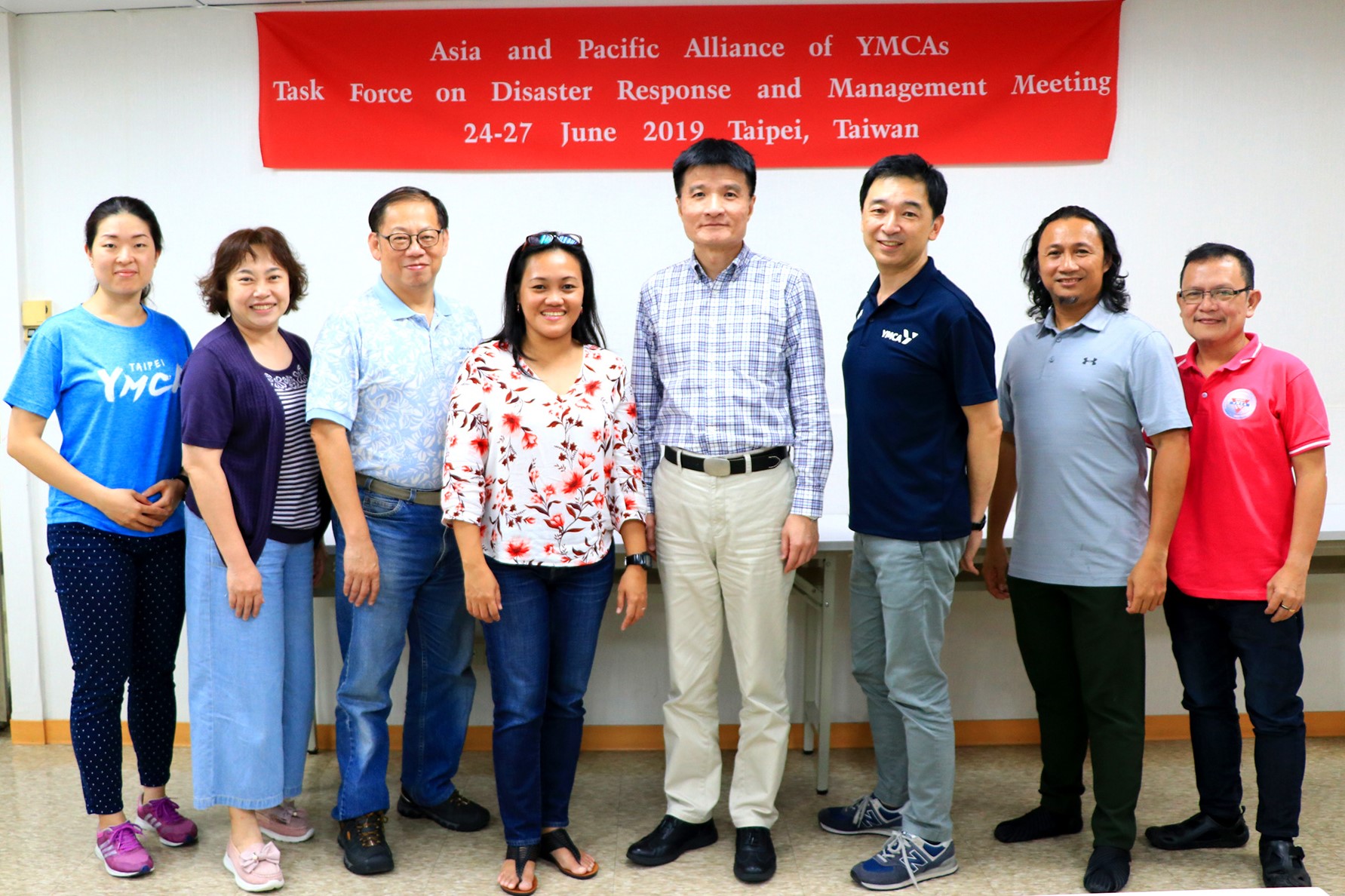 |
| ↑ Group photo with James Tou, GS of Taiwan YMCA & Task Force Members |
The meeting included a review of YMCA mission imperative in relation to responding to disasters, relevance of programs/project conducted on the ground during the quadrennial and learning points and areas of improvement. The discussions on the above mentioned points served as reference points to the drafting of the regional coordination principles and guidelines. The guideline is deemed necessary in strengthening the movements’ social relevance and accountability. The meeting was facilitated by Mr. Victor Obedicen of University of the Philippines and attended by the Task Force members representing national movements of Japan, Taiwan and Philippines; while apologies were received from Sri Lanka and India.
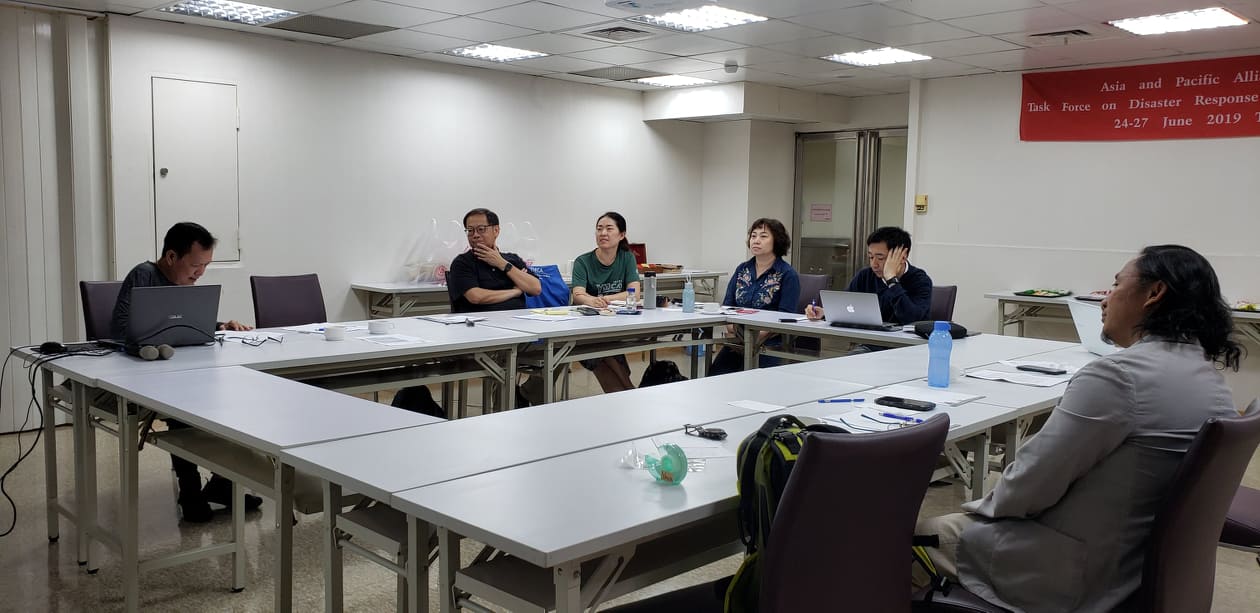 |
| ↑ Members of Task Force during discussion section |
~ Maria Cristina L. Miranda, Executive Secretary
Movement Strengthening Visit to Timor Leste YMCA
With a view to helping to strengthen the Timor Leste YMCA, Mr. Lee Yun-Hee, the Movement Strengthening Coordinator of APAY, made a visit to TL YMCA from 10th June to 17th June. A special focus of my visit this time was given to how to make the YMCA more self-reliant and sustainable by developing stable income-generating project/program in the near future. In this regard, my six days visit included observing the YMCA kindergarten and Japanese English class as well as the soccer program; discussion and mentoring of General Secretary Antonio and other staffs; reviewing financial reports and book-keeping records; meeting with board members and volunteers to discuss the future of the TL YMCA, etc. Upon my visit, I also met with Peace Coffee staffs to explore the possibility of its cooperation and support to TL YMCA.
With regards to financial status and reporting, it was strongly advised that the kindergarten income and expenditure, that is presently separated, should be integrated into the YMCA financial report. Likewise, the budget for the soccer team (or “YMCA Football Club”) should be integrated into the YMCA finance as well. After reviewing the total PSG support budget, there was some adjustment as some lack of the PSG fund was anticipated. The MS Coordinator saw a high possibility for sustainable income-generation in both the language classes and the kindergarten program in the coming future. In order to increase the surplus of the kindergarten, imminent needs were identified for investment to improve the facilities and equipment of the kindergarten, as well as train the teachers in a more professional way.
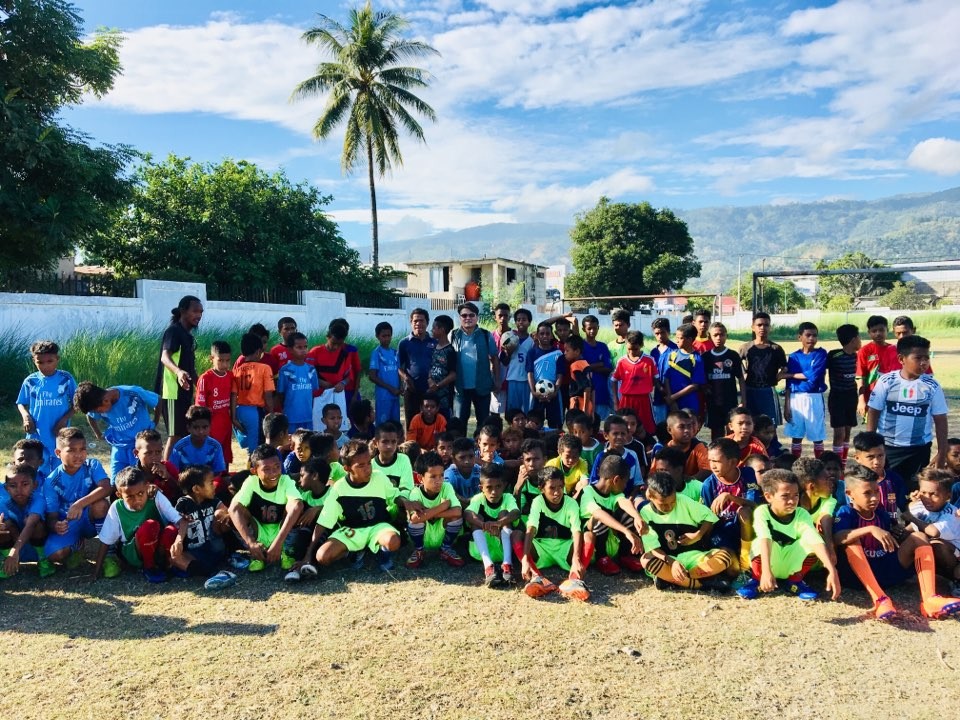 |
| ↑ Meeting with the YMCA soccer team members and coaches |
As regards the pending land issue, an urgency to ensure a long-term use of the land was re-emphasized by the MS coordinator to GS Antonio as well as the YMCA board members when the coordinator met with them. This matter needs to be re-confirmed in the next PSG meeting as a prerequisite for further investment and support for Terra Santha YMCA building.
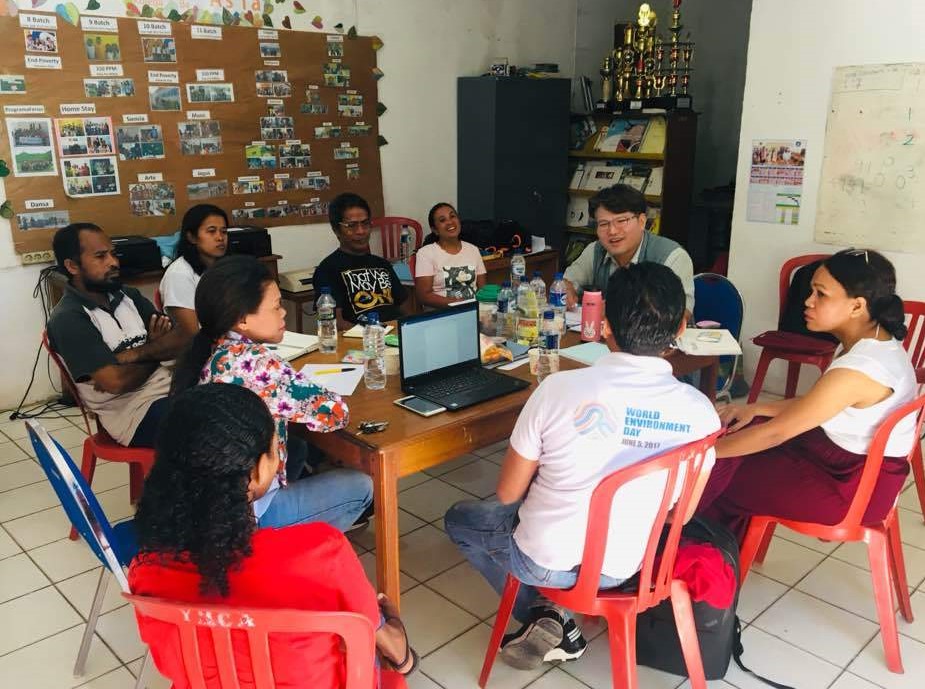 |
| ↑ Meeting with the TL YMCA Board and Staffs |
During the meeting with the YMCA board, the coordinator emphasized the significance of the actively functioning board to ensure good governance in the YMCA; how to understand “governance as leadership”; what is the divided roles between the board and professional staff (or management); and how to balance out between the two pillars to strengthen the viability of the YMCA not only as a faith-based movement but also as a strong institution. At the meeting, the board informed the MS coordinator that they would develop a plan to form a YMCA branch in a nearby city. The coordinator clarified that in principle, a local YMCA could be formed as a bottom-up approach rather than the TL YMCA (or practically the Dili YMCA) set up a branch. And later on in the future, an official process towards formation of the National Council could be made by a couple of local YMCAs including the Dili YMCA. The MS coordinator also discussed at length with the board the necessity for the YMCA to work collectively with a view to formulating a strategic plan of the YMCA including YMCA land and facilities. Once a draft plan is ready, the PSG would be able to review the feasibility of the plan and see how to support the plan to be materialized. Also discussed with the board was how to groom a professional leadership, particularly among the young generation who are already volunteers of the YMCA. In this regard, it was proposed to have a leadership training session including for the board members, combined with the next PSG meeting in Dili.
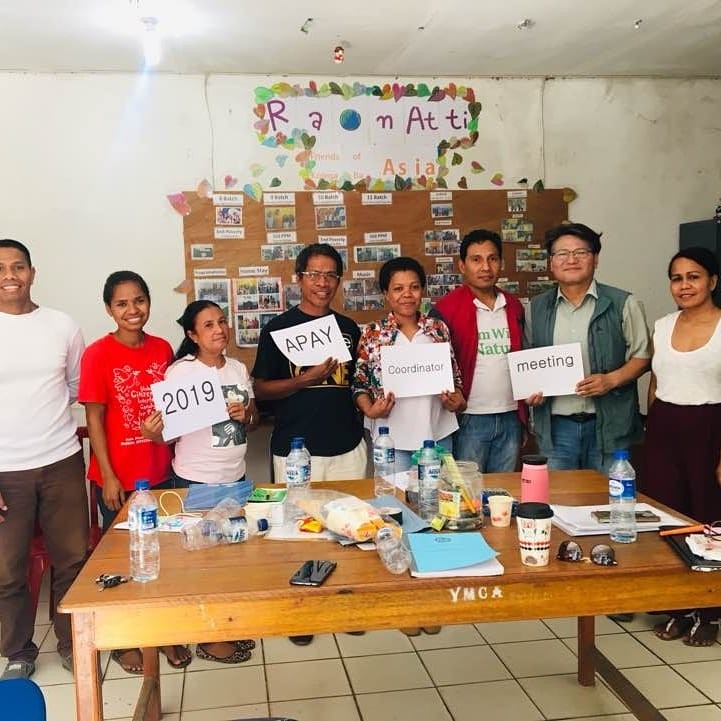 |
| ↑ Discussion and mentoring with the YMCA staff and an overseas volunteer from Korea |
~Lee Yun-Hee, MS Coordinator
New Program Officer of ICF
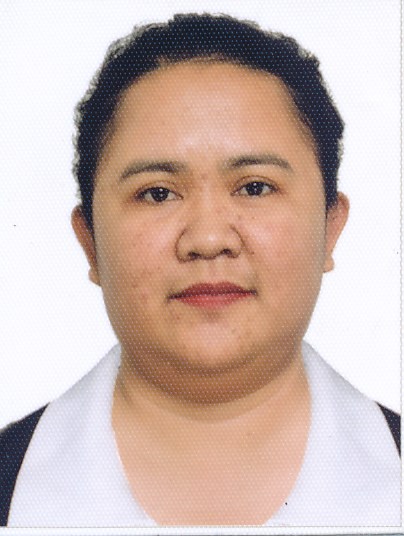 Ms. Baidido Manalasal Saganding has been appointed as the new Program Officer of Interfaith Cooperation Forum. Baidido is from Pagangan, Aleosan, Cotabato, Philippines. Having taken a college degree in Social Work in a school affiliated with a Protestant Church and having passed the board exams given by the Professional Regulation Commission of the Philippines, Baidido is a registered Social Worker. She holds a masters’ degree in Management, major in Public Administration. Currently, she is taking up a Master of Science in Extension Education. She grew up in a multi-faith and Tri-People community that had been affected by conflicts and has experienced being displaced, leaving their homes for safety several times. Ms. Baidido Manalasal Saganding has been appointed as the new Program Officer of Interfaith Cooperation Forum. Baidido is from Pagangan, Aleosan, Cotabato, Philippines. Having taken a college degree in Social Work in a school affiliated with a Protestant Church and having passed the board exams given by the Professional Regulation Commission of the Philippines, Baidido is a registered Social Worker. She holds a masters’ degree in Management, major in Public Administration. Currently, she is taking up a Master of Science in Extension Education. She grew up in a multi-faith and Tri-People community that had been affected by conflicts and has experienced being displaced, leaving their homes for safety several times.
These experiences led her to serve as the project manager of the program for the Internally Displaced Persons (IDP) under the Mindanao satellite of Balay Rehabilitation Center, Inc. that is based in Midsayap, North Cotabato. BALAY (meaning “house” in Visayan, and short name for the center) works for promotion and protection of human rights, and provide psychosocial services to persons deprived of liberty, victims of organized political violence, and communities of displaced persons due to armed conflicts. It envisions people to cultivate a culture of peace and “contribute to the attainment of human security and peace in the communities that it serves and the entire society.” Thus, interfaith peacebuilding is an inherent component of her program because of its Tri-People context – a context where Christians, Indigenous Peoples (Lumads) and Muslims live together. One of Baidido’s major tasks was to coordinate the Self-Help Group Approach for the Children as Zone of Peace Project (SHA-CZOP) in her home town in Aleosan, North Cotabato. She is used to working with young people.
We welcome Baidido at Hong Kong and hope that she will add a new dimension in our work on peace building activities at ICF.
|
